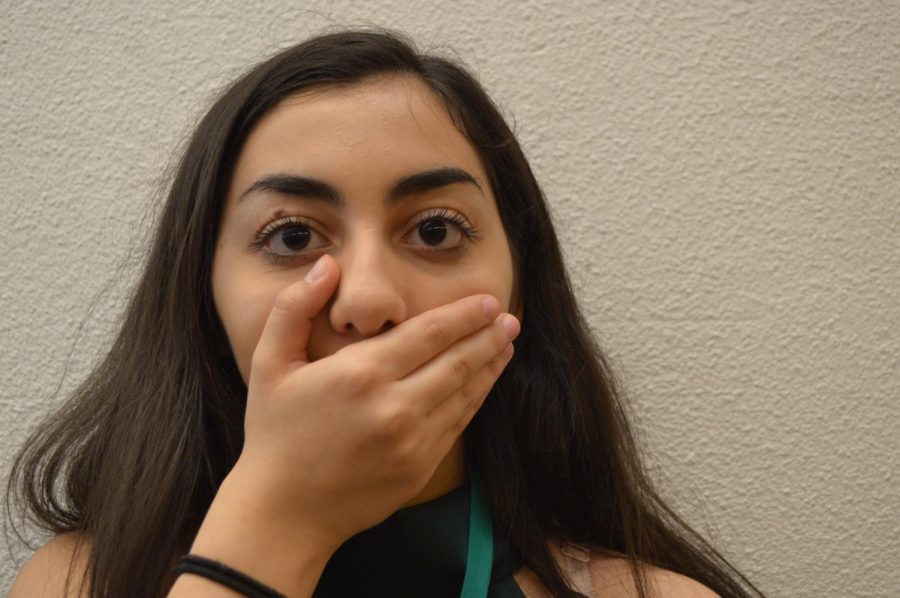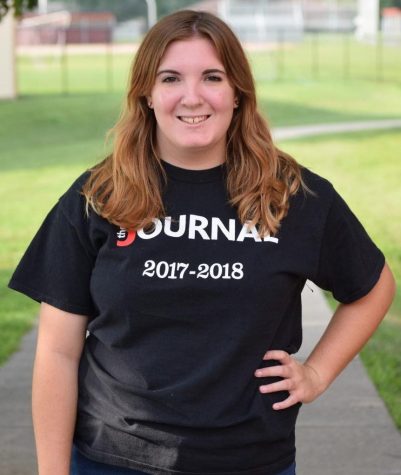Student journalists’ rights restricted
Texas district disallows students to freely cover extracurriculars
Heritage High School sophomore Maya Aridi poses with her hand over her mouth, representing being censored.
November 17, 2017
The First Amendment states that “Congress shall make no law… abridging the freedom of speech or of the press.” This right has been in place for over 200 years for American Citizens. However, for thousands of students, the right has been cut short.
The Fresco Independent School District in Fresco, TX has recently censored the Heritage High School’s broadcast publication from covering nonacademic-based extracurriculars. This means clubs such as Fellowship of Christian Athletes and Bring Change to Mind are not allowed to be mentioned in Heritage’s school news.
As staffers in a growing publication called Pack Page, both sophomore Maya Aridi and senior Miranda Servey are the first few victims of suppression in Heritage’s media by the school’s district.
According to Aridi and Servey, their principal, Mark Mimms, has been supportive of their efforts and has served as an advocate of their publication publishing what they want.
“(Mimms) wants to be able to recognize every group (publicly),” Servey said, “because they are part of our school, and they are all students.”
Along with Aridi and Servey, the rest of the staff, the adviser and the school’s administration have been supportive of what they hope to cover. However, the school’s district has discontinued their permission to freely publish what they please.
Servey describes the district as “very conservative” and “image based” as though they put on a front. This is why she thinks they have disallowed them to do as they please.
“You get so many good ideas,” Servey said, “but then when you try to bring it to your local program, it gets shut down. They want to support you, but it’s above them. They don’t want to look bad.”
Aridi and Servey mentioned multiple occasions where they had hoped to cover a topic but couldn’t due to their restrictions.
“There was a big sexual harassment scandal in our district, but it didn’t turn into a scandal because we couldn’t cover it,” Servey said. “My teacher turned down talking about sex-ed curriculum in Texas. By law, they can only teach abstinence, and I want to bring attention to this.”
As a feminist, Aridi hopes to cover politics and controversial topics, but she cannot do so.
“There’s a new club called ‘Girls Up’. It’s about empowerment of women, and we’re not allowed to cover that because it’s feminism (and not academic based),” Aridi said.
The clubs typically email the publication schedules and what is going on, but according to Aridi and Servey, their emails are not needed anymore because they aren’t allowed to publish them.
“No longer can we approach them and say, ‘Hey, I want to bring more attention you your club,’” Aridi said.
Aridi and Servey hope to bring justice to their censorship. They plan on contacting state legislators and getting involved with higher authorities.
They both feel cynical for not being able to cover other clubs, but according to them, it is what it is for now.
“I anticipate feeling neglected this year, honestly,” Servey said.



